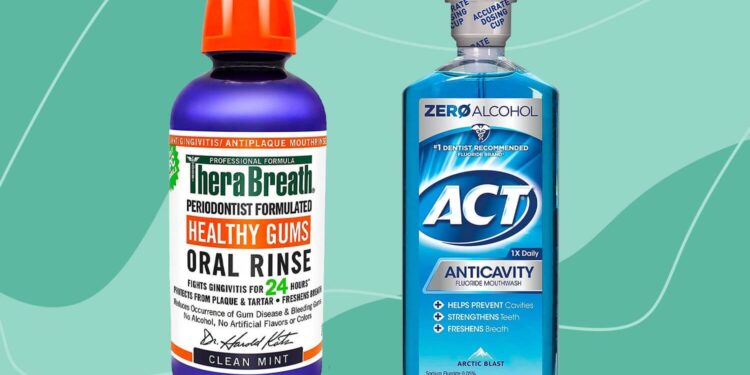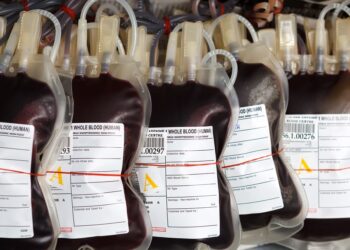Periodontitis, a severe gum infection that damages soft tissue and bone, requires effective treatment. Mouthwash can play a helpful role in combating periodontal disease.
CUPERTINO, CALIFORNIA | NOW THEN DIGITAL — Periodontitis is a serious gum infection that leads to damage of the soft tissue and bone supporting the teeth.
To effectively combat periodontal disease, incorporating mouthwash into your oral hygiene routine can be a valuable tool.
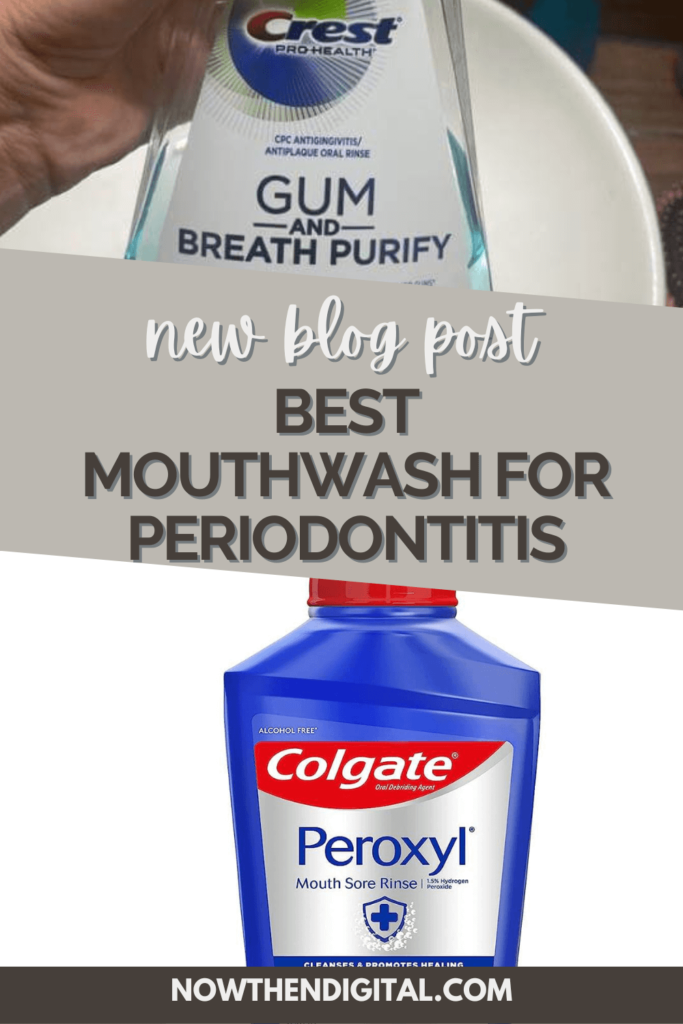
Certain mouthwashes containing specific ingredients have shown effectiveness in reducing plaque and gingivitis, addressing common symptoms associated with periodontitis. In this article, we present a selection of the best mouthwashes for periodontitis, based on expert recommendations and customer reviews.
- TheraBreath Periodontist Recommended Healthy Gums Oral Rinse
This specially-formulated mouthwash is designed to treat periodontal disease. It offers 24-hour protection against gingivitis, reducing the occurrence of gum disease and its related symptoms. Clinically proven to target bacteria at the gum line, it effectively reduces gum swelling and redness while protecting against plaque that contributes to gingivitis.
- Crest Pro-Health Gum and Breath Purify Mouthwash
Clinically proven to prevent gingivitis and reduce plaque, this alcohol-free mouthwash offers a dual benefit of purifying bad breath. Its active ingredient, cetylpyridinium chloride, ensures effective results.
- Colgate Peroxyl Antiseptic Mouthwash and Mouth Sore Rinse
Containing 1.5% hydrogen peroxide, this mouthwash not only helps reduce plaque and gingivitis but is also effective in treating mouth sores.
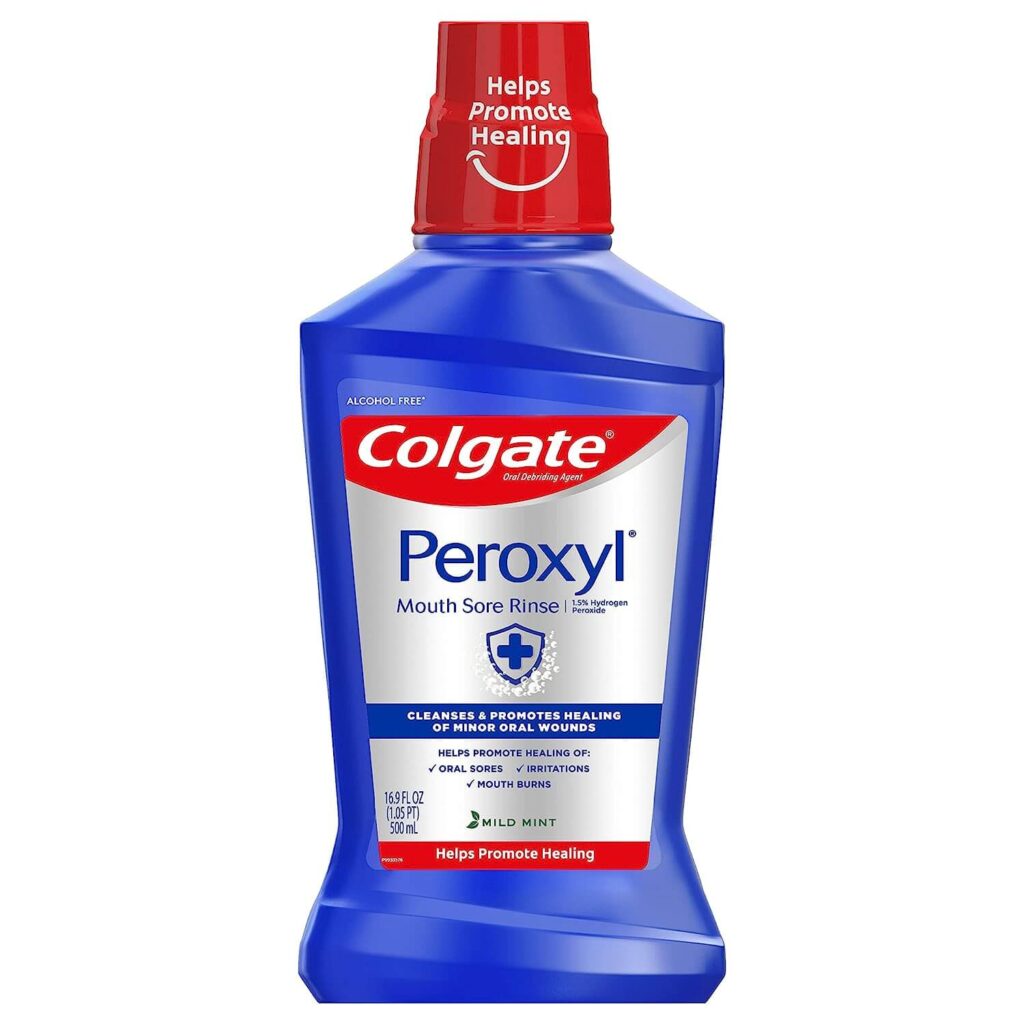
- CloSYS Ultra Sensitive Mouthwash
Specifically designed for individuals with sensitive gums and teeth, this alcohol-free mouthwash offers a gentle solution. Its pH-balanced formula includes chlorine dioxide, which kills bacteria and provides a refreshing breath.
- Listerine Total Care Gum Protect Milder Taste Mouthwash
Designed to fight germs above and below the gum line, this mouthwash effectively prevents plaque and promotes 2x healthier gums when compared to brushing alone. It is formulated to defend against gingivitis and prevent gum problems.
The Role of Mouthwash in Periodontitis Treatment
While mouthwash can assist in reducing plaque and tartar buildup, it is essential to note that it cannot cure periodontal disease. Periodontitis is a serious condition that necessitates professional treatment from a dentist or periodontist.
If you suspect you may be suffering from periodontal disease, consult your dentist for mouthwash recommendations suitable for your unique situation.
It is crucial to consult a dentist or periodontist for appropriate mouthwash recommendations based on individual needs and the severity of periodontal disease. They can provide personalized treatment plans and guidance.
Using Mouthwash Effectively
To maximize the benefits of mouthwash, it is important to follow the instructions on the label and use it as directed.
However, it should never be considered a substitute for regular oral hygiene practices such as brushing and flossing. Instead, mouthwash should complement a comprehensive dental routine that includes good oral hygiene practices to maintain fresh breath and prevent gum disease.
Mouthwash should be used alongside regular dental visits and proper oral hygiene practices.
Active Ingredients in Mouthwash for Periodontitis
Mouthwashes that effectively combat periodontitis contain active ingredients such as chlorhexidine or hydrogen peroxide, known for their ability to reduce plaque and gingivitis.
Additionally, other ingredients have shown efficacy in addressing periodontitis, including cetylpyridinium chloride, sodium fluoride, stannous fluoride, stannous chloride, zinc oxide, zinc chloride, licorice, and curcumin.
Here are some examples of mouthwashes containing active ingredients known for their effectiveness against periodontitis:
- TheraBreath Periodontist Recommended Healthy Gums Oral Rinse
This mouthwash, formulated specifically to treat periodontal disease, fights gingivitis for 24 hours after use.
It reduces gum disease symptoms by targeting bacteria at the gum line, reducing gum swelling and redness, and protecting against plaque that contributes to gingivitis. Its active ingredient is cetylpyridinium chloride.
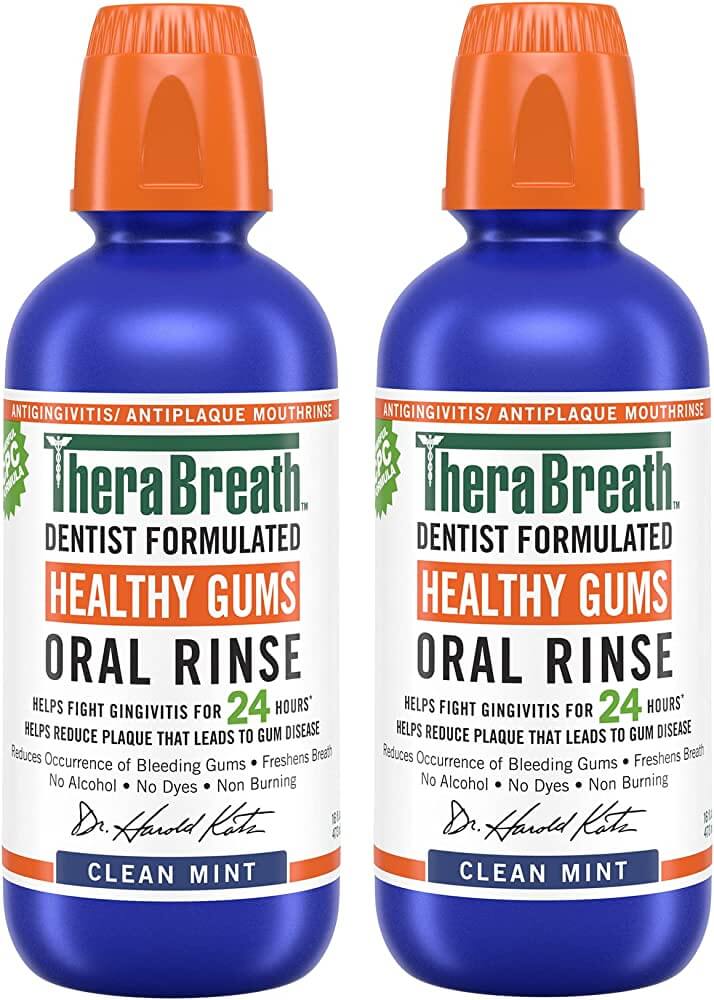
- Crest Pro-Health Gum and Breath Purify Mouthwash
Clinically proven to prevent gingivitis and reduce plaque, this alcohol-free mouthwash also contains cetylpyridinium chloride as its active ingredient.
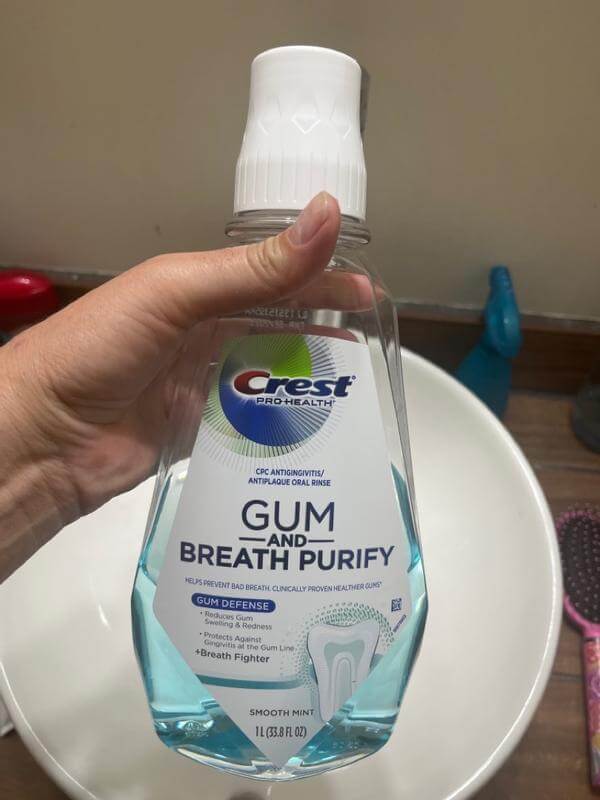
- Colgate Peroxyl Antiseptic Mouthwash and Mouth Sore Rinse
Containing 1.5% hydrogen peroxide, this mouthwash effectively reduces plaque and gingivitis while providing relief for mouth sores.
Remember, while mouthwash can help reduce plaque and tartar buildup, it cannot cure periodontal disease. Professional treatment from a dentist or periodontist is essential for addressing periodontitis effectively. For personalized mouthwash recommendations suitable for your specific needs, consult your dentist.
How Often Should You Use Mouthwash to Treat Periodontitis?
To achieve the best results in treating periodontitis, mouthwashes containing chlorhexidine or hydrogen peroxide should be used twice a day, according to Dental Associates of North Alabama.
It is crucial to reiterate that while mouthwash can aid in reducing plaque and tartar buildup, it cannot cure periodontal disease.
For effective treatment of periodontitis, it is necessary to seek professional care from a dentist or periodontist. Follow their recommendations regarding mouthwash use and incorporate it into a comprehensive oral hygiene routine that includes brushing, flossing, and regular dental visits.
In conclusion, using mouthwash containing chlorhexidine or hydrogen peroxide twice a day can be beneficial in reducing plaque and tartar buildup associated with periodontitis. However, professional treatment from a dentist or periodontist is necessary to address periodontal disease comprehensively.
Can Mouthwash Alone Treat Periodontitis, or is it Necessary to See a Dentist?
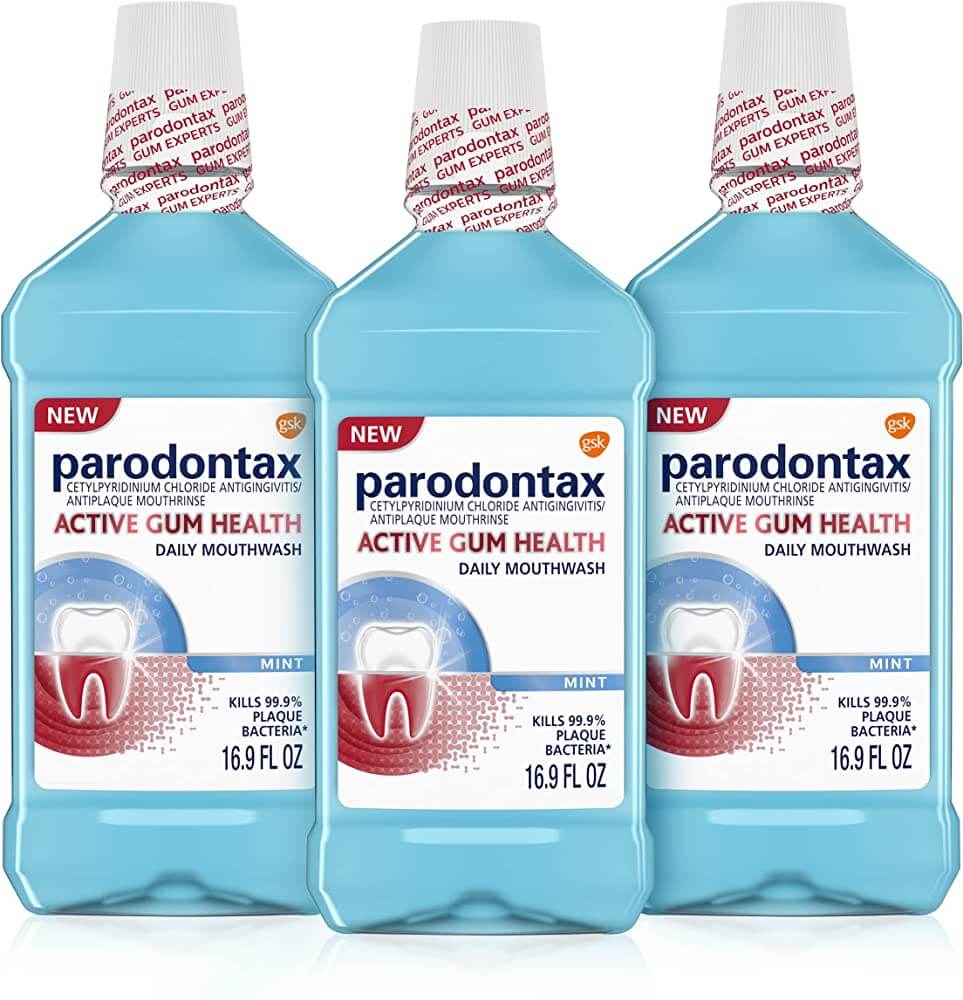
While mouthwash can assist in reducing plaque and tartar buildup, it cannot cure periodontal disease on its own. Periodontitis is a serious condition that requires professional treatment from a dentist or periodontist. While mouthwash can be used as an adjunct to professional treatment, it should not replace regular dental visits.
Mouthwashes containing chlorhexidine or hydrogen peroxide have shown efficacy in reducing plaque and tartar buildup associated with periodontitis.
Additionally, mouthwashes containing active ingredients such as cetylpyridinium chloride, sodium fluoride, stannous fluoride, stannous chloride, zinc oxide, zinc chloride, licorice, and curcumin are effective against periodontitis.
It is essential to consult your dentist for mouthwash recommendations suitable for your specific needs, as different types of mouthwash may be recommended based on the severity of the periodontal disease and your individual situation.
In summary, while mouthwash can complement professional treatment for periodontal disease, it cannot provide a standalone cure. Seek professional treatment from a dentist or periodontist for periodontal disease and adhere to their recommendations regarding mouthwash use.
Editor’s Note: If you find any of our content to be inaccurate or outdated, please contact us at press@nowthendigital.com


